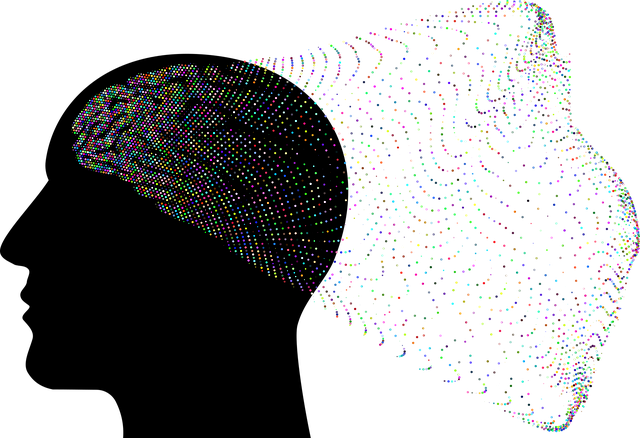Mental illness stigma significantly hinders individuals seeking help in Colorado Springs, leading to marginalization and silence. Colorado Springs Anger Management Therapy emerges as a vital resource offering support and strategies for emotional regulation. Public awareness campaigns challenging negative perceptions are crucial, alongside nuanced media portrayals and community engagement. Involving lived experience individuals as consultants and integrating Mental Health Education into media production can reduce stigma. Community initiatives like Colorado Springs Anger Management Therapy facilitate open dialogue, skill development, and supportive networks, empowering individuals to manage mental health conditions effectively.
In today’s digital age, media representation of mental illness significantly impacts societal perceptions. This article delves into the challenge of stigma surrounding mental health, analyzing its pervasive effects on public understanding. We examine the current state of media portrayal and propose solutions to foster positive change.
One such initiative, Colorado Springs Anger Management Therapy, offers local support for individuals seeking help. Additionally, we explore strategies to enhance mental health depiction in media and emphasize community engagement as a powerful tool to break down barriers and build supportive networks.
- Understanding Mental Illness Stigma and its Impact on Society
- The Current State of Media Representation: A Critical Analysis
- Colorado Springs Anger Management Therapy: A Local Resource for Change
- Strategies to Enhance Positive Mental Health Portrayal in Media
- Community Engagement: Empowering Dialogue and Support Networks
Understanding Mental Illness Stigma and its Impact on Society

Stigma surrounding mental illness is a pervasive issue that casts a long shadow over society. It often manifests as fear, misunderstanding, and discrimination, creating barriers for individuals seeking help. This societal stigma can have severe consequences, leading to the marginalization of those with mental health challenges. Many suffer in silence, afraid to disclose their struggles due to the potential consequences on their social standing and career prospects. In Colorado Springs, anger management therapy has emerged as a vital resource, offering support and strategies to combat these internalized demons.
The impact of stigma extends beyond the individual; it hinders progress in mental wellness initiatives. Public Awareness Campaigns Development can play a pivotal role in challenging these negative perceptions. By fostering open dialogues, sharing personal stories, and promoting cultural sensitivity in mental healthcare practice, we can create a more supportive environment. This collective effort is crucial to encouraging early intervention, proper treatment, and ultimately, a reduction in the burden of mental illness on individuals and communities alike.
The Current State of Media Representation: A Critical Analysis

The current state of media representation when it comes to mental illness often falls short of accuracy and sensitivity. Despite growing awareness about mental health issues, popular culture still perpetuates stereotypes and oversimplifies complex conditions. In many cases, media portrays individuals with mental illnesses as dangerous, unpredictable, or even villainous, contributing to stigma and fear within society. This misrepresentation is particularly evident in movies and television shows where characters with severe disorders are often reduced to mere plot devices rather than three-dimensional individuals. As a result, viewers gain skewed perceptions of what it means to live with a mental illness.
In Colorado Springs, the demand for services like anger management therapy reflects a growing recognition of these issues within communities. Emotional regulation and empathy-building strategies are essential components of effective treatment, emphasizing the importance of understanding and supporting individuals grappling with their mental health. Moreover, mental wellness coaching programs development can play a pivotal role in empowering people to manage their conditions and navigate life’s challenges more effectively. By challenging stereotypical narratives and promoting nuanced representations in media, we contribute to a more inclusive and supportive societal landscape for those seeking help.
Colorado Springs Anger Management Therapy: A Local Resource for Change

In the pursuit of a more empathetic media portrayal of mental illness, local initiatives like Colorado Springs Anger Management Therapy play a pivotal role in challenging stereotypes and fostering understanding. This therapy center offers specialized services aimed at addressing anger-related issues, providing a safe space for individuals to navigate their emotions effectively. Through evidence-based practices, they facilitate emotional healing processes, which can significantly alleviate anxiety and boost confidence among clients.
By focusing on anger management, Colorado Springs Anger Management Therapy contributes to the broader goal of promoting mental wellness in the community. Their approach recognizes that managing anger is a crucial aspect of overall well-being, often linked to various psychological disorders including anxiety. By targeting this specific need, the therapy center empowers individuals to break free from destructive patterns and embrace healthier coping mechanisms.
Strategies to Enhance Positive Mental Health Portrayal in Media

In recent years, there has been a growing awareness of the importance of accurate and positive representation of mental health in media. To enhance this portrayal, various strategies can be implemented. One key approach is to involve individuals with lived experiences as consultants or contributors, ensuring their voices are heard and their perspectives authentically represented. This method not only adds depth but also promotes understanding and empathy among audiences. Additionally, collaborating with healthcare providers and trauma support services can offer insights into the nuanced aspects of mental health issues, particularly in addressing specific challenges like anger management.
Media organizations can further contribute by prioritizing diverse storytelling, showcasing a range of cultural backgrounds and experiences related to mental illness. This involves not only casting actors from various communities but also consulting with experts who can guide on best practices for accurate representation. Incorporating Mental Health Education Programs Design into media production processes can ensure that content creators are equipped with the knowledge to portray conditions like anger management in a sensitive and informed manner, potentially reducing stigma and promoting more effective support services, such as those available through Colorado Springs Anger Management Therapy.
Community Engagement: Empowering Dialogue and Support Networks

In addressing mental illness representation in media, community engagement plays a pivotal role in fostering understanding and support. By empowering open dialogue, individuals affected by mental health issues can find solace and encouragement. This involves hosting community forums, workshops, and educational sessions where people share their experiences, break down stereotypes, and offer mutual support. Colorado Springs Anger Management Therapy, for instance, has seen success in these initiatives, providing a safe space for individuals to learn coping skills and develop supportive networks.
Integrating risk management planning for mental health professionals is essential within these community efforts. Through comprehensive risk assessment for mental health professionals, practitioners can better navigate challenging situations, ensuring the safety of both clients and themselves. This proactive approach not only enhances the effectiveness of therapy but also builds trust within the community, encouraging more people to seek help without fear of judgment or unsafe practices. Coping skills development is a key component in this process, enabling individuals to manage their mental health proactively and build resilience against potential triggers.
In light of the above discussions, it’s clear that challenging mental illness stigma through accurate media representation is a multifaceted task. By understanding the profound impact of stigma and critically analyzing current portrayals, we can advocate for more positive and diverse representations. Local initiatives like Colorado Springs Anger Management Therapy play a crucial role in providing resources and fostering dialogue. Community engagement is the ultimate game changer; it empowers support networks and encourages open conversations about mental health. Ultimately, media has the potential to revolutionize how society perceives and supports individuals grappling with mental illness.














